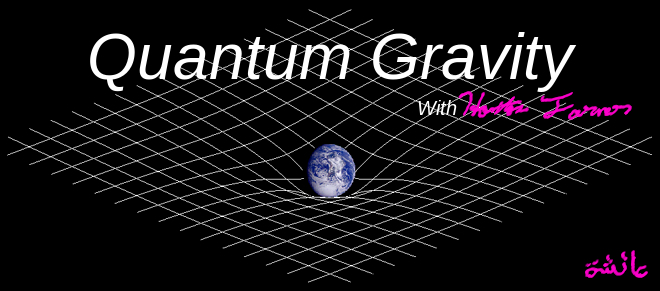If someone can use Kickstarter to raise $50,000 for making potato salad, perhaps, I can raise at least $2500 to pay publication fees on three papers. It is a little known fact that formally publishing an article in a scientific journal cost money. This money is needed by open access publishers because they do not charge a subscription fee. However, even traditional subscription supported journals require hefty publication fees for their services. It will be interesting to see how this plays out. I doubt boring old physics will go viral, but hopefully something more enduring than a side dish can raise a fraction of the money that Potato salad did.
I believe in the broader concept of a science 2.0. A science which is transparent and the process plays out in public. The public pays the bills via the governments funding of laboratories, colleges, universities, contractors, grants and forgiven loans. Those who pay should see how we are using their tax dollars. While this experimental appeal will sound unorthodox, in a way all I am doing is going right to the source of funds, the people by way of Kickstarter.
The Potato Salad Kickstarter
I was at a loss about what I could try. I had heard of Kickstarter but thought of it as something one would use to start a tech company or something. Then on the radio I heard of someone who used it to raise money for making potato salad. Someone raised $50,000 for making potato salad That's right, potato salad. It is has been used for a number of frivolous fund-raisers. So, if someone can use Kickstarter to raise money for potato salad how much will people give to possibly advance science even a little bit? We shall see.
The papers
Each of these papers have different levels of review in addition to the editorial review, and peer review. They are not bad or fringe science.
The first paper is entitled "Disk-outflow models as applied to high mass star forming regions through methanol and water maser observations" (arXiv:1311.3983) and is meant to appear in the International Journal of Astronomy and Astrophysics. This is based on my Masters Thesis "Insights into High Mass Star Formation from Methanol Maser Observations" completed at DePaul University in Chicago. The subject is massive star formation.
The second paper is entitled "A Lagrangian which models Lambda CDM cosmology and explains the null results of direct detection efforts." Which I was to give a talk at the April 2014 meeting of the American Physical Society. Sadly, for the same reasons I need to use Kickstarter, I could not afford to make the trip to Savannah Georgia to present that paper. Maybe in 2015. This paper would appear in the journal ScienceOpen Research.
The third and final paper is my latest work, a new approach to the question of how to best combine General Relativity with Quantum Field Theory (QFT). "Quantum gravity by relativization of Quantum Field Theory." My short answer to this question is, since making General Relativity into a quantum theory has been tried and failed 100 ways for 100 years, why not try making QFT part of General Relativity? (QFT is already correct under Special Relativity without gravity.) This would appear in the journal ScienceOpen Research. This appears no where else online so I will include its Abstract, or summary, here.
Abstract: The question is how can we make quantum field theory part of General Relativity instead of how we can quantize gravity. Here it will be shown that a Hilbert space can be defined such that the bra-ket is a four vector in Minkowski space-time, <ψ|ϕ>=va∈M. Minkowski space is the tangent space at an arbitrary point on a Riemannian manifold. It will then be shown that the Riemann curvature connects these spaces by operating on the probability density 4-current j^a of the local QFT. Choosing the Klein-Gordon field as a simple example QFT, the quantized Einstein-Hilbert action will then be derived. From there the expected Feynman diagrams for General Relativity can be read off. In this way one may calculate the gravitational effect due to a quantum field theoretical event.
If an endorser would kindly endorse me for the ArXiv archive gr-qc please comment or email me and I will send you the information. While I am endorsed for the archive galaxy astrophysics it would be a stretch to put either of the last two papers there.
Why no grant funding or employer support?
Scientist usually fund the publication of their findings with the same funds that paid for the work. Typically this is grant funding or funds available from the institution(s) they are affiliated with. Only one of these works had the sanction of a higher authority which in a sense has published the work. That work is my MS thesis. Which is about as published as a thesis ever gets. One of the papers in question is derived from that thesis.
Another part of my problem is that I am a very new Adjunct professor at Richard J. Daley College one of the City Colleges of Chicago, and the College of DuPage. The traditional means of funding my work simply are not available at this time.
College of DuPage will provide some funds for professional development, publishing, and travel to conferences for adjuncts who have been with them for three years. I'm sure the city colleges will too after I have been there long enough to join the union. I just do not have the time in, and time is of the essence when it's publish or perish.
TL;DR Hey, people use Kickstarter for all sorts of fundraising purposes why not science projects. If you agree click here and donate as little as a dollar to my cause.
UPDATE
I have chosen to publish one of the papers at the Winnower.
https://thewinnower.com/papers/quantum-gravity-by-relativization-of-quan...





Comments